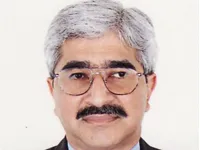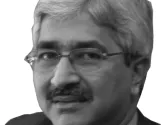
Islamic banks in Asia, and their differences with their GCC counterparts
By Adil AhmadThe Islamic banking sector is one of the fastest growing segments in global banking, growing at an estimated 15-20% p.a.
Given the huge Muslim population globally, the growing wealth of this population, the increasing sophistication of the products and services in the Islamic banking universe and the popularity of the ethical Islamic banking model, the future growth potential for Islamic banking is huge.
There are basically two major geographical groupings in the Islamic banking universe - East Asia (Malaysia,Indonesia and Singapore) and Gulf Cooperation Council (Saudi Arabia, UAE, Kuwait/Bahrain,Qatar and Oman).
There are of course Islamic banks also in Europe, South Asia, Africa, Turkey etc. In terms of growth and global profile the two standouts have been the Islamic banks in Malaysia and the GCC.
The two groups have several significant differences. The best known one is the differences in Shariah interpretation. The somewhat less well known one is the differences in the way they manage their banking businesses. The balance of this article focuses on the second of these differences.
In the GCC, by and large, the commercial Islamic banks are standalone banks in that they have their own marketing teams, branches, operating platforms, back offices, product development teams, finance and accounting staff, internal audit and so forth. In many ways they are an Islamic mini-HSBC or mini-Citibank.
Their small sizes result in lack of economies of scale and scope, and lower product and geographic diversification. These lead to higher risk which many industry experts believe will cause quite a few of them to eventually fail and be absorbed by their more successful competitors.
The flip side is that those that do manage to grow will have leaders and managers who are adept and experienced in managing the entire range of front, middle and back office functions of large banks.
The position in Malaysia is somewhat different. Although virtually all the larger Islamic banks are separate legal entities, many are 100% owned subsidiaries of the big local conventional banks.
Several of these larger Islamic banks are primarily product developers with marketing, sales and distribution, back office and other staff functions being undertaken and managed by their parents. Some of these Islamic banks do have a limited number of branches, but these branches form only a part of their sales and customer interface functions.
This approach enables these Islamic banks to leverage off the far greater size and experience of their parent banks, and results in them enjoying greater economies of scale and scope and lower overall risks. At the same time the top management of these Islamic banks is unable to experience the ‘whole banking’ experience of their GCC counterparts.
Only time will tell which model is better.





![Lorem Ipsum [ABF 1]](https://cmg-qa.s3.ap-southeast-1.amazonaws.com/s3fs-public/styles/exclusive_featured_article/public/2025-03/a_hand_pointing_to_a_futuristic_technology_5b87c9d0e3_1.png.webp?itok=2w0y1WhS)


![Cross Domain [Manu + SBR + ABF + ABR + FMCG + HBR + ]](https://cmg-qa.s3.ap-southeast-1.amazonaws.com/s3fs-public/styles/exclusive_featured_article/public/2025-01/earth-3537401_1920_4.jpg.webp?itok=WaRpTJwE)







 Advertise
Advertise

